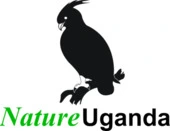Public lecture to celebrate World Wildlife Day

Topic: ’’State of Wildlife in Uganda; the role of partnership in wildlife conservation’’
Every year on March 3, people all over the world celebrate World Wildlife Day to honour the many beautiful and unique species of wild animals and plants. Wildlife traditionally refers to undomesticated animal species but has come to include all plants, fungi, and other organisms that grow or live wild in an area without being introduced by humans.

This year’s theme is “Partnerships for Wildlife Conservation,” which provides an opportunity to highlight individuals who are making a difference. The Ministry of Tourism Trade and Industry is leading in the preparations of the National celebrations where a series of events to celebrate the day including a Public lecture have been organised. Nature Uganda together with the Ministry of Trade, Tourism and Industry organised a Public talk on ’’State of Wildlife in Uganda: the role of partnership in wildlife Conservation ’’ on 1st March 2023.
This years’ theme emphasizes our species’ health, which depends on biodiversity to maintain a healthy environment, ecological sustainability, and healthy wildlife populations. This will necessitate a collaborative effort by organizations.
Current difficulties of wildlife conservation including climate change have created new challenges for wildlife, which have been aggravated by reckless development and historical wrongdoing. Due to increasing deforestation, water scarcity and drought conditions are most severe on the African continent. A lack of food and water, habitat destruction, wildlife migration, and wetland loss can all lead to the extinction of wildlife populations. Wildlife plant and animal species are being harmed due to illegal wildlife trade, and endangered species are being driven to extinction. Wildlife crimes frequently target vulnerable animals and plants because of their scarcity and rising economic value. Population growth is causing infrastructure and agriculture to expand in nearby areas, reducing the animals’ natural habitat due to wildlife damage.
The keynote speakers were Mr Sam Mwandha, Executive Director, Uganda Wildlife Authority (UWA); Dr Gladys Kalema-Zikusoka, Founder and Executive Director, Conservation through Public health (CTPH); and the Managing Director, Space for Giants.
- State of Wildlife in Uganda by Dr Gladys Kalema-Zikusoka – PDF
Related Posts
Recent Posts
Forests and wetlands degradation and it’s impacts on herpetofauna and other wildlife
Embracing Regenerative Tourism as the next step in Sustainable Tourism
Engaging Site-based Communities in Research and Conservation: The Locally-based Monitoring Initiative
All Categories
- Conservation and Development (27)
- Eco-tourism (3)
- Education and Awareness (10)
- Forests (7)
- Habitats (9)
- Nature walk (2)
- People (5)
- Projects (9)
- Public dialogue (6)
- Research and Monitoring (18)
- Sites (4)
- Species (10)
- Wetlands (12)
- Wildlife (6)




